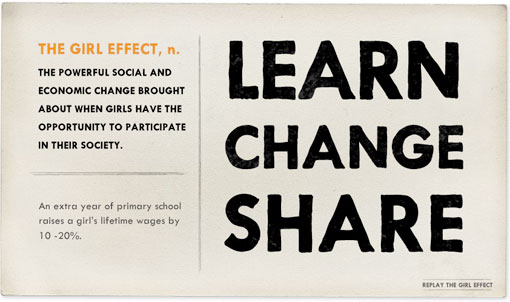In case you missed it, a few years back there was a major brouhaha (limited mostly to the U.S.) because some astronomers began to argue that Pluto should be reclassified as a dwarf planet, part of the Kuiper belt. This started when, in 2001, the American Museum of Natural History (in New York) created a display about the solar system that did not include Pluto. At first the museum received letters (often from children) pointed out that Pluto was missing, such as this one (from an NPR story on the subject):
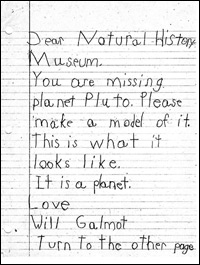
But then word got out that the museum left Pluto out of the display on purpose, and that the director of the museum argued that Pluto is not a planet. Then a real letter-writing campaign began, from both kids and adults (found here):
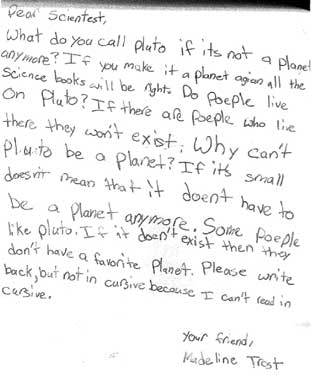
Text [some errors corrected for ease of reading]:
Dear Scientist,
What do you call Pluto if it’s not a planet anymore? If you make it a planet again all the science books will be right. Do people live on Pluto? If there are people who live there they won’t exist. Why can’t Pluto be a planet? If it’s small doesn’t mean that it doesn’t have to be a planet anymore. Some people like Pluto. If it doesn’t exist then they don’t have a favorite planet. Please write back, but not in cursive because I can’t read in cursive.
A Save Pluto movement had begun, including pro-Pluto websites, t-shirts, bumperstickers, and so on (at CafePress):


Some of these were clearly meant in a joking manner, but many of the letters sent to the museum or published in newspapers expressed realy anger over the change. Headlines announced that Pluto was being “demoted” from planet status. Amid lots of angry debate even among themselves, astronomers eventually voted to recategorized Pluto as a dwarf planet.
You might use these to talk about public controversies about scientific research. This is a particularly odd example because the public concern didn’t spring from arguments that the research was immoral or dangerous (claims used to oppose, say, embryonic stem cell research or cloning). The outrage about Pluto’s change in status mostly occurred in the U.S. and was based on the fact that people just seem to really like Pluto and consider it their “favorite” planet. Neil DeGrasse Tyson, director of the museum, suggests that this might be because of Disney’s cartoon dog Pluto. Regardless, a significant number of people wrote angry and even threatening letters to various outlets about a scientific reclassification that didn’t affect them in any real way; they just didn’t like it.
It’s also interested that Pluto’s reclassification was interpreted as a “demotion,” as though being a dwarf planet is clearly inferior to being a “real” planet, as though the objects in the solar system are arranged in a hierarchy based on size, and being anything other than a planet is a sad, sad fate. DeGrasse Tyson stresses that to astronomers, a dwarf planet isn’t “inferior to” a “regular” one–it’s just another category of things that exist in the galaxy. It’s an interesting example of how scientists’ perceptions of what their research means and the public’s interpretations may differ wildly.
NOTE: Mordecai comments,
First I want to say: All scientific classification is arbitrary. There is no such thing as a planet, or a mammal. These are terms humans put on them to try to make sense of the universe, not some built in truth.
Absolutely. I didn’t mean to imply the scientists were applying some ultimate truth about the universe when they re-classified Pluto. What I find interesting is what the controversy was based on: not “we think the data is wrong,” or “this is immoral or harmful,” but “Leave Pluto alone! It’s our favorite!” And the fact that it was really only a scandal in the U.S. is striking as well–whether it’s the character of Pluto or not, for some reason Americans are pretty much uniquely concerned about Pluto’s status.

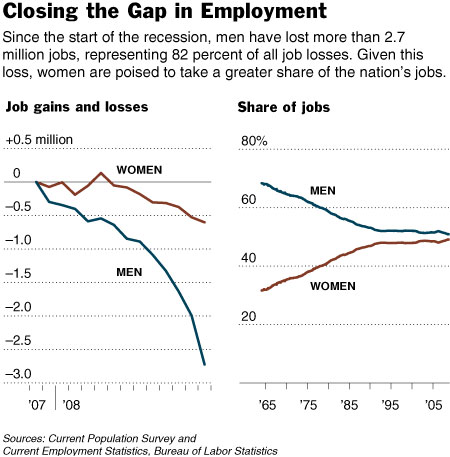
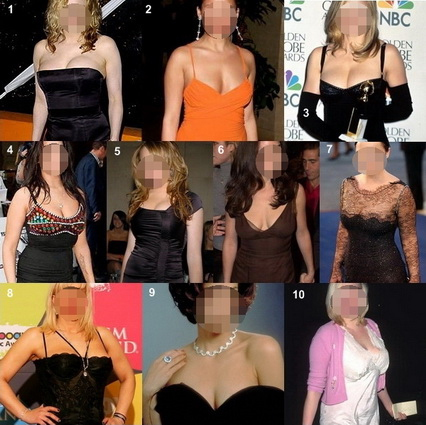
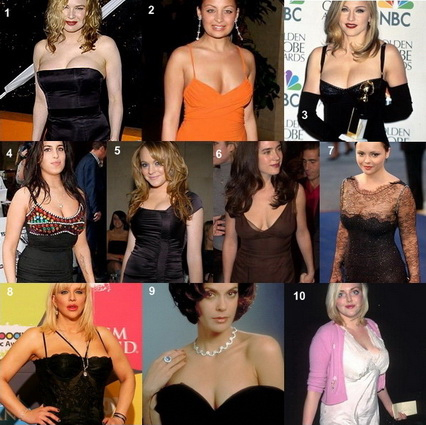
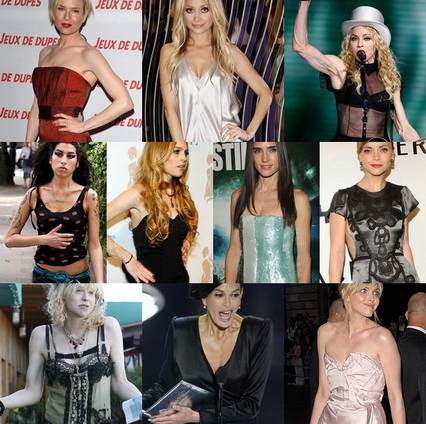

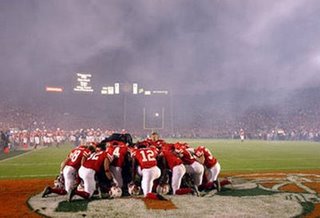 I realized I had watched the Super Bowl and likely seen
I realized I had watched the Super Bowl and likely seen 